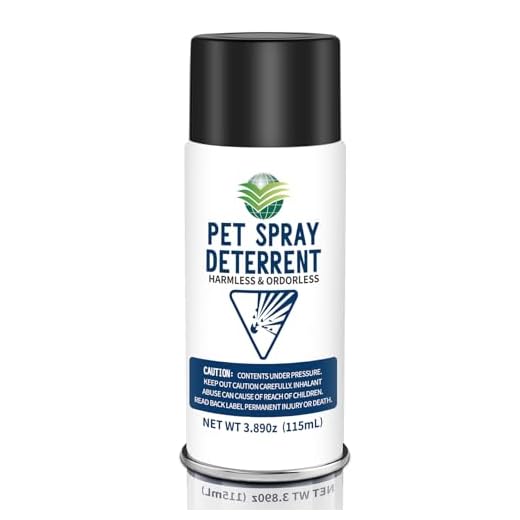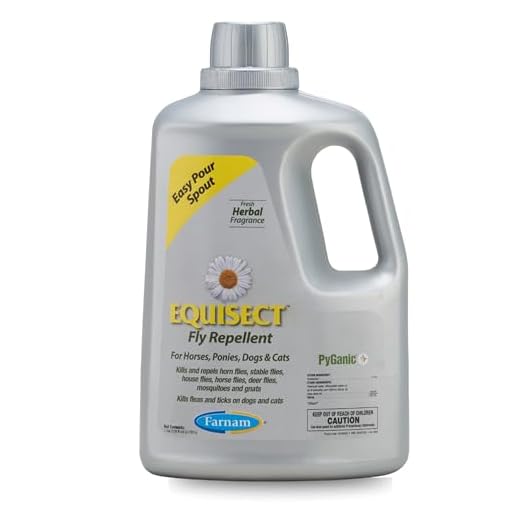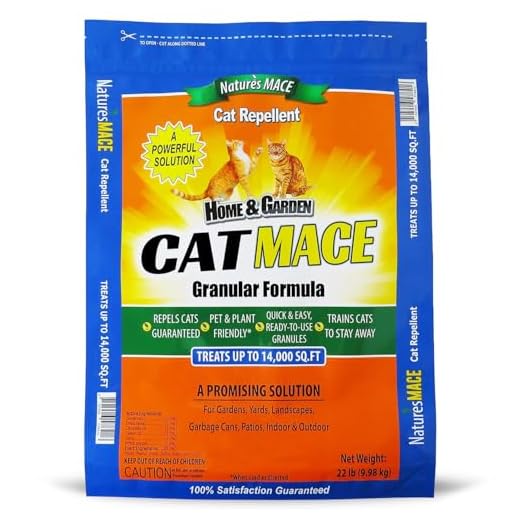



Using strong-smelling substances around your living space might not be the best solution for keeping furry visitors away. Instead of relying on these traditional methods, consider safer and more natural alternatives that are proven to work.
For instance, citrus peels, such as lemon or orange, can be a fantastic deterrent. Cats typically dislike the scent of citrus, so scattering some peels around areas you want to protect could help keep them at a distance. Similarly, plants like lavender or rosemary not only smell great to humans but also serve as natural repellents for our four-legged friends.
Another approach involves creating barriers using physical objects. For example, placing double-sided tape on surfaces where you don’t want them to tread can be effective. The sticky texture is uncomfortable for their paws, encouraging them to stay away. Additionally, using motion-activated devices that emit sounds or sprays can manage their presence without causing harm.
Solutions for Keeping Felines Away
Using strong-smelling substances can sometimes keep unwanted furry visitors at bay. However, the effectiveness of certain items is debated among pet owners. If you’re seeking alternatives, consider natural deterrents like citrus peels or vinegar, which many kitties find unpleasant.
Natural Alternatives
Essential oils such as lavender and eucalyptus can be integrated into your strategy, but ensure they’re used safely, as some oils can be harmful to animals. Sprinkling cayenne pepper or using commercial sprays designed for pet training may also help in creating a less inviting environment for intruders.
Environmental Adjustments
Creating physical barriers can also be a smart move. Fencing, netting, or even strategically placed plants known to repel animals can be effective. Ensure that any modifications are safe and won’t harm the creatures you want to deter.
How Mothballs Affect Cat Behavior
The strong odor of these products can trigger various reactions in felines. Many of my kind may experience irritation or discomfort due to the chemicals present, leading to avoidance behavior. It’s common to find us steering clear of areas where the scent is prevalent.
Some might become agitated, displaying signs of stress such as excessive grooming or vocalization. In contrast, a few adventurous spirits may react with curiosity, approaching the source of the smell. However, this can be dangerous, as ingestion of these substances can lead to severe health issues.
It’s crucial to keep such items out of reach to ensure a safe environment. If you’re curious why some of us seem attracted to unusual items, like plastic bags, check out this link: why do cats like to lick plastic bags.
In summary, while the intention may be to keep unwanted guests away, the potential harm to us should be a primary concern. Always prioritize our well-being over temporary solutions.
Safe Alternatives to Mothballs for Keeping Felines Away
Consider using citrus peels, such as orange or lemon, to keep unwanted visitors at bay. Place the peels around your garden or in areas where you prefer not to see furry friends. The scent is refreshing for humans but often off-putting for many four-legged creatures.
Vinegar Solution
A mixture of water and vinegar can also serve as a deterrent. Combine equal parts of both in a spray bottle and apply it to areas that need protection. The strong aroma typically discourages exploration.
Herbal Repellents
Planting certain herbs like lavender, rosemary, or rue can act as a natural barrier. These plants not only enhance your garden’s aesthetics but also emit scents that many animals find uninviting. Alternatively, dried versions of these herbs can be placed in sachets around your home.
Using these methods can create an environment that’s less appealing for them while keeping your space fresh and inviting for you. Always ensure that any substances used are safe and non-toxic to all pets, as well as humans.
Video:
Using strong-smelling substances around your living space might not be the best solution for keeping furry visitors away. Instead of relying on these traditional methods, consider safer and more natural alternatives that are proven to work.
For instance, citrus peels, such as lemon or orange, can be a fantastic deterrent. Cats typically dislike the scent of citrus, so scattering some peels around areas you want to protect could help keep them at a distance. Similarly, plants like lavender or rosemary not only smell great to humans but also serve as natural repellents for our four-legged friends.
Another approach involves creating barriers using physical objects. For example, placing double-sided tape on surfaces where you don’t want them to tread can be effective. The sticky texture is uncomfortable for their paws, encouraging them to stay away. Additionally, using motion-activated devices that emit sounds or sprays can manage their presence without causing harm.
Solutions for Keeping Felines Away
Using strong-smelling substances can sometimes keep unwanted furry visitors at bay. However, the effectiveness of certain items is debated among pet owners. If you’re seeking alternatives, consider natural deterrents like citrus peels or vinegar, which many kitties find unpleasant.
Natural Alternatives
Essential oils such as lavender and eucalyptus can be integrated into your strategy, but ensure they’re used safely, as some oils can be harmful to animals. Sprinkling cayenne pepper or using commercial sprays designed for pet training may also help in creating a less inviting environment for intruders.
Environmental Adjustments
Creating physical barriers can also be a smart move. Fencing, netting, or even strategically placed plants known to repel animals can be effective. Ensure that any modifications are safe and won’t harm the creatures you want to deter.
How Mothballs Affect Cat Behavior
The strong odor of these products can trigger various reactions in felines. Many of my kind may experience irritation or discomfort due to the chemicals present, leading to avoidance behavior. It’s common to find us steering clear of areas where the scent is prevalent.
Some might become agitated, displaying signs of stress such as excessive grooming or vocalization. In contrast, a few adventurous spirits may react with curiosity, approaching the source of the smell. However, this can be dangerous, as ingestion of these substances can lead to severe health issues.
It’s crucial to keep such items out of reach to ensure a safe environment. If you’re curious why some of us seem attracted to unusual items, like plastic bags, check out this link: why do cats like to lick plastic bags.
In summary, while the intention may be to keep unwanted guests away, the potential harm to us should be a primary concern. Always prioritize our well-being over temporary solutions.
Safe Alternatives to Mothballs for Keeping Felines Away
Consider using citrus peels, such as orange or lemon, to keep unwanted visitors at bay. Place the peels around your garden or in areas where you prefer not to see furry friends. The scent is refreshing for humans but often off-putting for many four-legged creatures.
Vinegar Solution
A mixture of water and vinegar can also serve as a deterrent. Combine equal parts of both in a spray bottle and apply it to areas that need protection. The strong aroma typically discourages exploration.
Herbal Repellents
Planting certain herbs like lavender, rosemary, or rue can act as a natural barrier. These plants not only enhance your garden’s aesthetics but also emit scents that many animals find uninviting. Alternatively, dried versions of these herbs can be placed in sachets around your home.
Using these methods can create an environment that’s less appealing for them while keeping your space fresh and inviting for you. Always ensure that any substances used are safe and non-toxic to all pets, as well as humans.
Video:
Using strong-smelling substances around your living space might not be the best solution for keeping furry visitors away. Instead of relying on these traditional methods, consider safer and more natural alternatives that are proven to work.
For instance, citrus peels, such as lemon or orange, can be a fantastic deterrent. Cats typically dislike the scent of citrus, so scattering some peels around areas you want to protect could help keep them at a distance. Similarly, plants like lavender or rosemary not only smell great to humans but also serve as natural repellents for our four-legged friends.
Another approach involves creating barriers using physical objects. For example, placing double-sided tape on surfaces where you don’t want them to tread can be effective. The sticky texture is uncomfortable for their paws, encouraging them to stay away. Additionally, using motion-activated devices that emit sounds or sprays can manage their presence without causing harm.
Solutions for Keeping Felines Away
Using strong-smelling substances can sometimes keep unwanted furry visitors at bay. However, the effectiveness of certain items is debated among pet owners. If you’re seeking alternatives, consider natural deterrents like citrus peels or vinegar, which many kitties find unpleasant.
Natural Alternatives
Essential oils such as lavender and eucalyptus can be integrated into your strategy, but ensure they’re used safely, as some oils can be harmful to animals. Sprinkling cayenne pepper or using commercial sprays designed for pet training may also help in creating a less inviting environment for intruders.
Environmental Adjustments
Creating physical barriers can also be a smart move. Fencing, netting, or even strategically placed plants known to repel animals can be effective. Ensure that any modifications are safe and won’t harm the creatures you want to deter.
How Mothballs Affect Cat Behavior
The strong odor of these products can trigger various reactions in felines. Many of my kind may experience irritation or discomfort due to the chemicals present, leading to avoidance behavior. It’s common to find us steering clear of areas where the scent is prevalent.
Some might become agitated, displaying signs of stress such as excessive grooming or vocalization. In contrast, a few adventurous spirits may react with curiosity, approaching the source of the smell. However, this can be dangerous, as ingestion of these substances can lead to severe health issues.
It’s crucial to keep such items out of reach to ensure a safe environment. If you’re curious why some of us seem attracted to unusual items, like plastic bags, check out this link: why do cats like to lick plastic bags.
In summary, while the intention may be to keep unwanted guests away, the potential harm to us should be a primary concern. Always prioritize our well-being over temporary solutions.
Safe Alternatives to Mothballs for Keeping Felines Away
Consider using citrus peels, such as orange or lemon, to keep unwanted visitors at bay. Place the peels around your garden or in areas where you prefer not to see furry friends. The scent is refreshing for humans but often off-putting for many four-legged creatures.
Vinegar Solution
A mixture of water and vinegar can also serve as a deterrent. Combine equal parts of both in a spray bottle and apply it to areas that need protection. The strong aroma typically discourages exploration.
Herbal Repellents
Planting certain herbs like lavender, rosemary, or rue can act as a natural barrier. These plants not only enhance your garden’s aesthetics but also emit scents that many animals find uninviting. Alternatively, dried versions of these herbs can be placed in sachets around your home.
Using these methods can create an environment that’s less appealing for them while keeping your space fresh and inviting for you. Always ensure that any substances used are safe and non-toxic to all pets, as well as humans.











